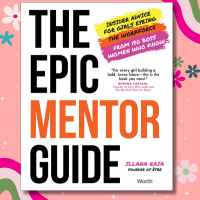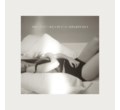HEALTH
Eat Right
Is your cereal causing you to have a bad day? Find out just how good (or bad) your cereal is for you

As much as we may love lunch and dinner, the sentiment is true. Starting your day off right with the proper nutrition is super important to kick start your day and give you the energy you need. And while some people say that eating anything in the morning is better than nothing, that’s not always the case. In fact, some breakfast foods do more harm to your body than help, including making you sluggish and not providing you with proper nutrients!
Dietdetective.com and Dr. Charles Platkin, a health advocate from Hunter College and City University of New York School of Public health, decided to evaluate one of the most popular breakfast foods in America: cereal.
With the help of Dr. Platkin, dietdetective.com put cereals to the test, finding out just how good (or bad!) 301 different types of cereals are for you based off a 19-point criterion.
Things they took in to account included the amount of calories, carbs, protein, sodium, fiber and sugar per serving (and gram), amount of added sugar, ingredient placement of sugar, ingredient placement of whole grains, the number of ingredients, presence of ‘real’ (natural) food, how many vitamins the cereal contained and just what the vitamins are, the avoidance or presence of additives, health claims, and whether or not the cereal used marketing techniques such as cartoon animals on the box.
What they found actually proved that some cereals are actually worse for you and can cause your day to start off slow instead of giving you the healthy energy boost you need. The cereal survey featured several results, including the top ten “healthiest” cereals and “least healthy” cereals.
Top five “healthiest” cereals you should try to kick-off your morning right include Nature's Path Organic Millet Puffs, Barbara's Shredded Wheat, Kashi Whole Wheat Biscuits Autumn Wheat, Quaker Oats Old Fashioned, and Nature's Path Oatmeal Gluten Free Selections Homestyle.
Five cereals you might avoid include the top five “least healthy,” which were General Mills Monsters Boo Berry, Kellogg’s Rice Krispies Treats, Post Fruity Pebbles, Post Summer Berry Pebbles, and General Mills Chocolate Lucky Charms.
Having doubts about your cereal choices? The survey dubbed the ‘Cereal Investigation’ also featured some helpful tips on how to determine what cereals may be best for you:
Avoid added sugars!
Sugar is naturally found in fruits, milk and grains, all ingredients that often relate to cereals. While you may think that sugar automatically indicates that something isn’t healthy, it’s really the added sugar and alternative artificial sweeteners that you have to look out for! If your cereal’s label contains ingredients such as Corn Syrup, Cane Sugar, Dextrose, Fructose, or High-Fructose Corn Syrup, it should indicate that the cereal (although ok on occasion) is primarily a no-no.
Fewer ingredients the better
If your cereal ingredients include a list of names so long you can barely read, let alone pronounce, chances are it’s not as natural as you’d like for a healthy option. Stick to short labels with ingredients you’d be able to find organically in your kitchen or grocery store. That means there’s less chance of processing and artificial ingredients that can be bad for you.
Don’t be tricked by the health claims
Sure, the little stickers that have claims like “Added fiber!” or “Now with more Vitamin C!” sound good, but research has shown that these health “benefits” aren’t actually that beneficial. The added minerals and vitamins aren’t nearly as efficient for your body compared to if you got them from foods that have them high levels of them naturally. Want fiber? Try some oats, toast, nuts, or fruits like strawberries, raspberries, or apples. Bananas and oranges are great for vitamins. Oh, and the “great source of calcium” claims? Not worth it either. Stick with some milk.
Pay attention to the serving sizes
A cereal may seem healthy, but then you look at the serving size and realize that it’s a ridiculously small amount of food for the amount of calories, sugars, and carbs per serving. Stay healthy, but still make sure you’re eating enough and not being tricked in to following a routine you think is healthy when it actually isn’t!

 become a contributor
become a contributor


















